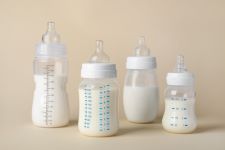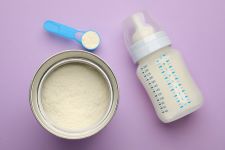
J. David Legan, PhD
Director of Science
David earned his Ph.D. in Food Technology from the University of Reading in the UK by modeling the ecology of mixed microbial populations, and then moved to Campden BRI in a variety of microbiological food safety research and client service roles. During that time, he was project lead for the Bacillus component of the UK’s pathogen modeling program. He moved again to Nabisco Research in New Jersey where he ran the corporate microbiology lab and developed a program of preservation technology development and microbial modeling. After the Kraft Foods acquisition, he moved to Chicago to work on Food Safety and Preservation research, and through modeling and validation studies:
- Optimized Oscar Mayer’s use of lactate and diacetate and their naturally cultured alternatives as Listeria-control agents in Ready to Eat meats
- Specified process conditions central to Oscar Mayer’s commercial launch of High Pressure Pasteurization of naturally cured RTE meats
David had responsibility for the Kraft cultures R&D group, developed a partnership to explore microwave sterilization leading to several patents, and led a program that developed an internal proprietary natural antimicrobial commercialized in several Kraft products. Technologies from his group supported approximately $4 billion in annual sales.
After years as a microbiology "client", he is now back in the "provider" role as Director of Science at Eurofins Microbiology Laboratories, Inc., by way of the Covance Food Solutions group based in Madison, WI, which he joined in 2016. In this role, he ensures appropriate method validation, explores new testing technologies, and fields multiple complicated food microbiology questions.
Products that his team has evaluated or developed and launched include:
- The 3M MDS platform in the Madison microbiology laboratory
- Flow cytometry for enumeration of probiotics
- Strain-level confirmation of probiotic identification using the polymerase chain reaction (PCR)
- Next-generation sequencing using the Oxford Nanopore Technologies GridION sequencing platform for microbial identification and microbiome analysis
Below are resources from David:
In this episode of The Scoop, host Keren Breiterman speaks with Jeff Shippar fromEurofins Food Chemistry Testing Madison, Inc. about advanced protein analysis how it ensures nutritional value, authenticity, and innovation in infant health.
In this episode of The Scoop, host Keren Breiterman speaks with Dr. Lukas Vaclavik, Technical Manager at Eurofins Food Chemistry Testing Madison, Inc, about testing innovations that ensure precision, progress, and safety in infant formula.
Whole genome sequencing is no longer just a research tool. It’s a critical asset in food safety, outbreak response, and public health protection. Read our blog to learn more about whole genome sequencing and how it helps us better understand organisms like Salmonella and Cronobacter in food and infant formula.
Discover expert insights into navigating Out-of-Specification (OOS) results and CAPA investigations. Learn key steps and strategies our technical team uses to resolve unexpected analytical outcomes effectively.
In this episode of The Scoop, host Keren Breiterman speaks with Andrezj Benkowski, Senior Technical Manager for Eurofins Chemistry Testing Laboratories - Madison, about Whole-Genome Sequencing—from its origins to its modern evolution through Next-Generation Sequencing.
In this episode of The Scoop, host Keren Breiterman speaks with Dave Ellingson, Director of Scientific Strategy for Eurofins Chemistry Testing Laboratories - Madison, about the role of phospholipids in infant formula and their importance in replicating the composition of human milk.
Phospholipids may be small molecules, but their impact is immense. By keeping them active and abundant in infant formula, we're taking one step closer to replicating the remarkable composition of human milk—and nurturing healthy development in every bottle. Click the link to learn how.
The use of real HMOs in infant formula is accelerating, driven by science, innovation, and a commitment to nourishing infants in the healthiest way possible. Enhanced testing methods are unlocking new capabilities—bringing us closer than ever to replicating the complexity and power of human milk. Click the link to learn more about HMOs.
In this episode of The Scoop, host Keren Breiterman speaks with Dave Ellingson, Director of Scientific Strategy for Eurofins Chemistry Testing Laboratories - Madison, about Human Milk Oligosaccharides (HMOs)—what they are, why they matter, and how they’re shaping the future of infant nutrition.
Low water activity foods (LWAFs) have historically been considered low-risk for microbiological hazards because their limited “free” (unbound) water in the formulation prevents bacterial growth. However, foodborne illness outbreaks revealed that pathogens can survive for extended periods in LWAFs, even in the absence of growth. Watch now to learn what is required to validate control measures to reduce microbial risks in LWAFs. Originally Aired on June 18, 2025.








